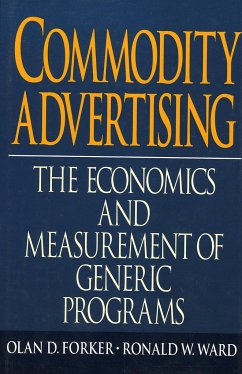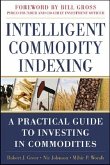Commodity checkoff programs have become an increasingly important way for U.S. agricultural producers to advertise and promote their products, both domestically and in foreign markets. Checkoffs - mandatory assessments of producers - fund generic advertising and promotion programs to expand and develop commodity markets. In Commodity Advertising, Olan D. Forker and Ronald W. Ward develop the terminology and set forth the economic theory of commodity advertising, as well as the legal and industrial structures necessary to underwriting commodity programs. Forker and Ward offer methods for evaluating the economic effectiveness of commodity programs, suggest techniques for integrating advertising and promotion expenditures into demand analysis, and propose a new method for estimating the functional relationship between advertising expenditures and expected sales response - one that provides a more realistic estimate of the shape of the advertising response function. They also present case studies on the advertising programs for fluid milk, beef, apples, citrus, wool, fresh tomato, catfish, potatoes, soybean, cheese, and fats and oils. Commodity Advertising demonstrates that like their brand counterparts, generic advertising programs do have a positive impact on consumer demand. While the impact varies among commodity groups, research indicates that well planned and executed generic advertising can yield benefits to the producers who fund the programs as well as the processors and consumers of the commodity. The authors treat advertising as information, and they present methods to estimate the value of this information to consumers and to the commodity industry. In general, advertisingyields greater benefits to the producers of the commodity when the industry's supply response is inelastic. But many other factors, including product quality, funding base, pricing, available substitutes, and consumer preferences influence the ability of commodity advertising programs to be effective. The authors discuss the influence on commodity demand of all these factors. The book will interest both agricultural and many nonagricultural groups, including academic, nonprofit, and governmental associations, businesses, and others who wish to explore the opportunities created by generic advertising and promotion efforts.
Hinweis: Dieser Artikel kann nur an eine deutsche Lieferadresse ausgeliefert werden.
Hinweis: Dieser Artikel kann nur an eine deutsche Lieferadresse ausgeliefert werden.








